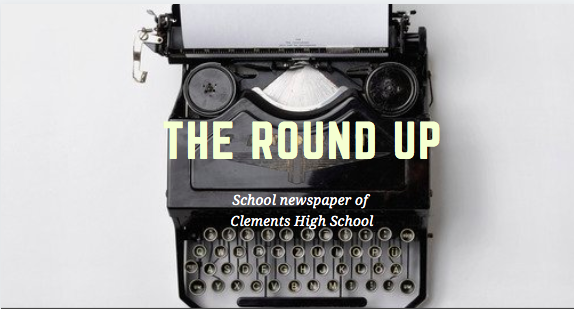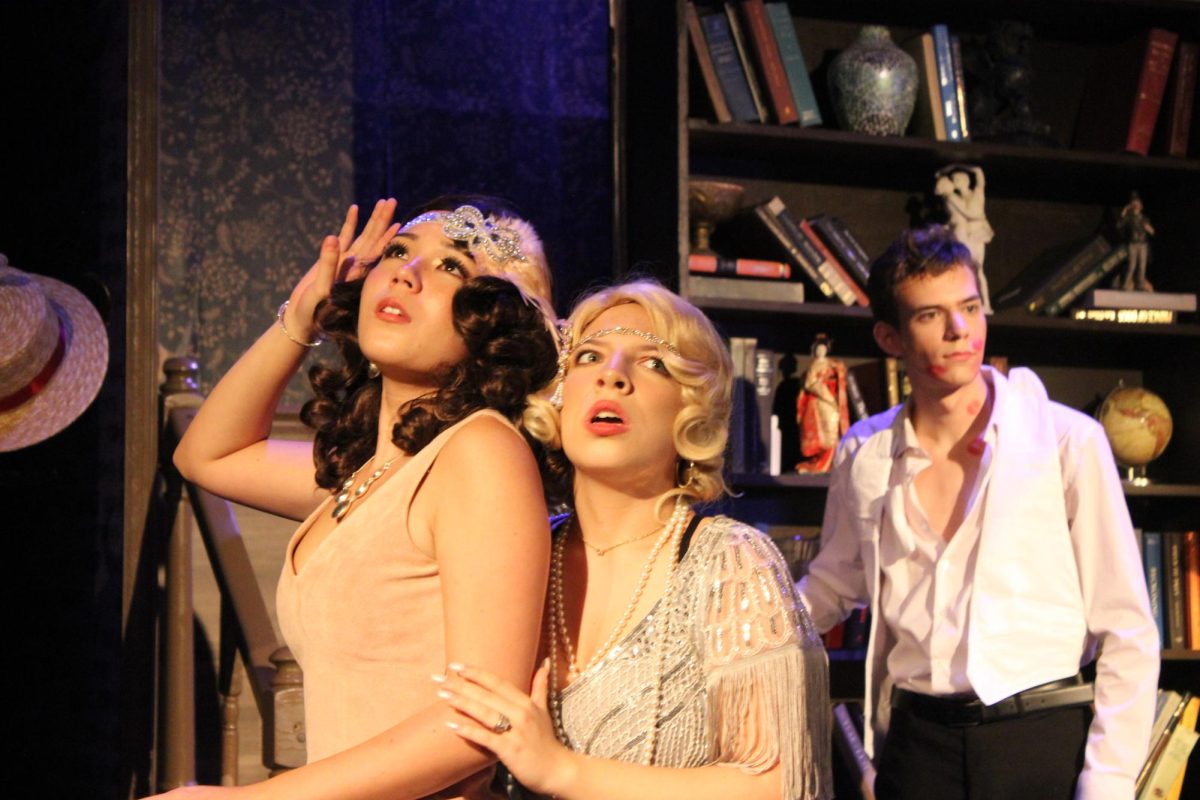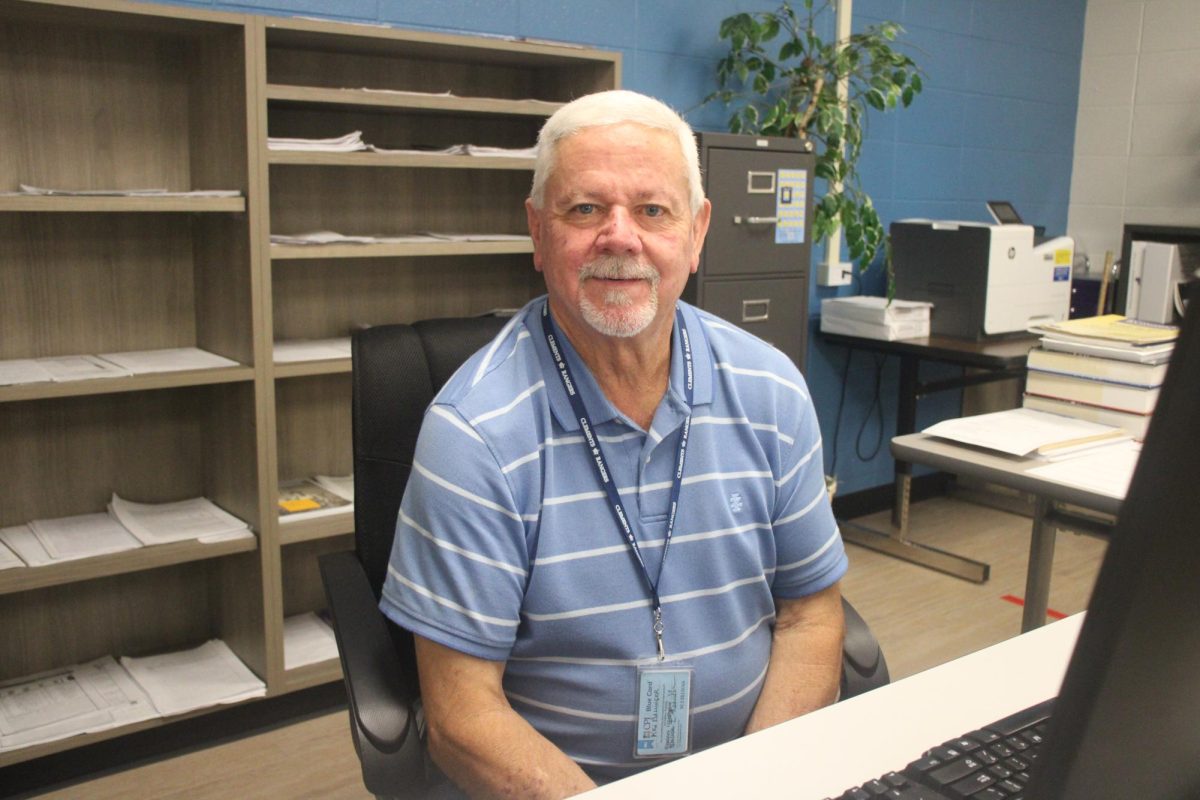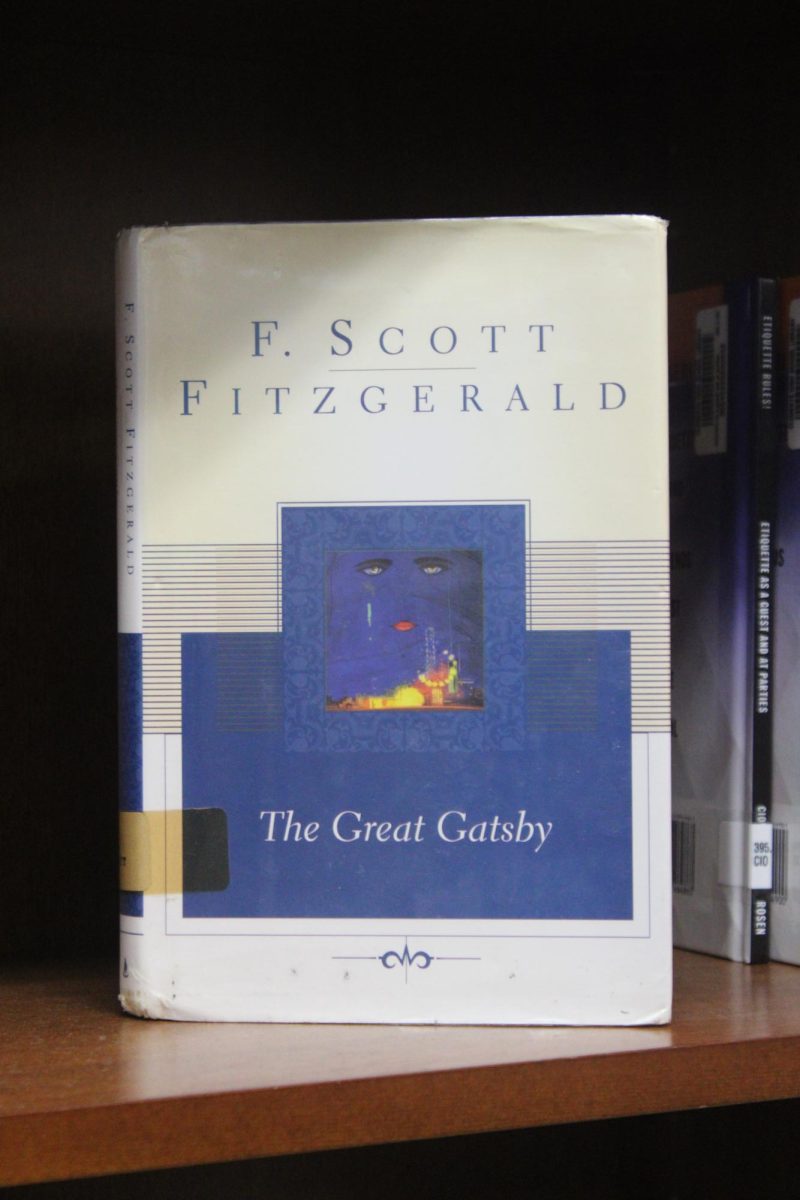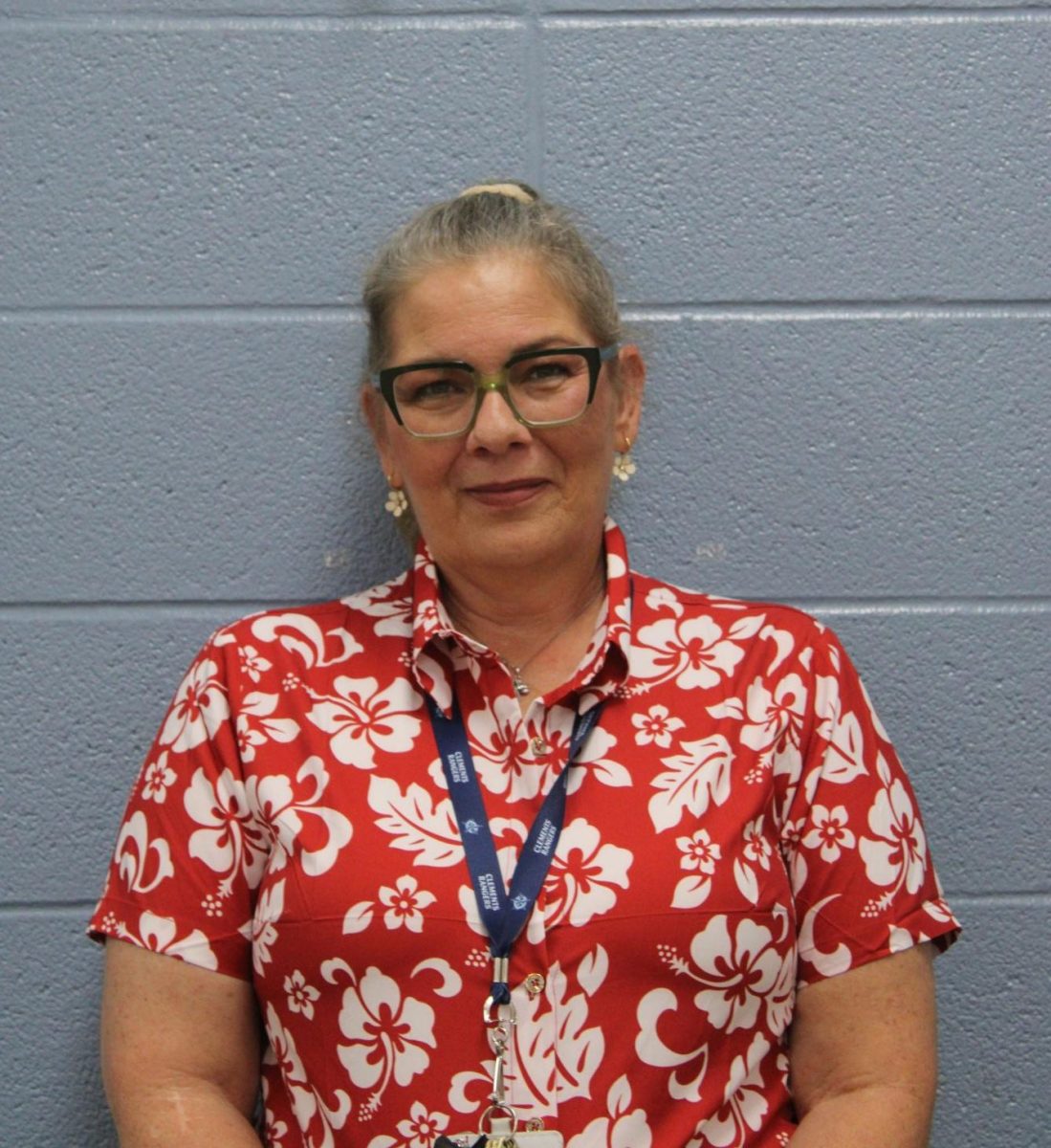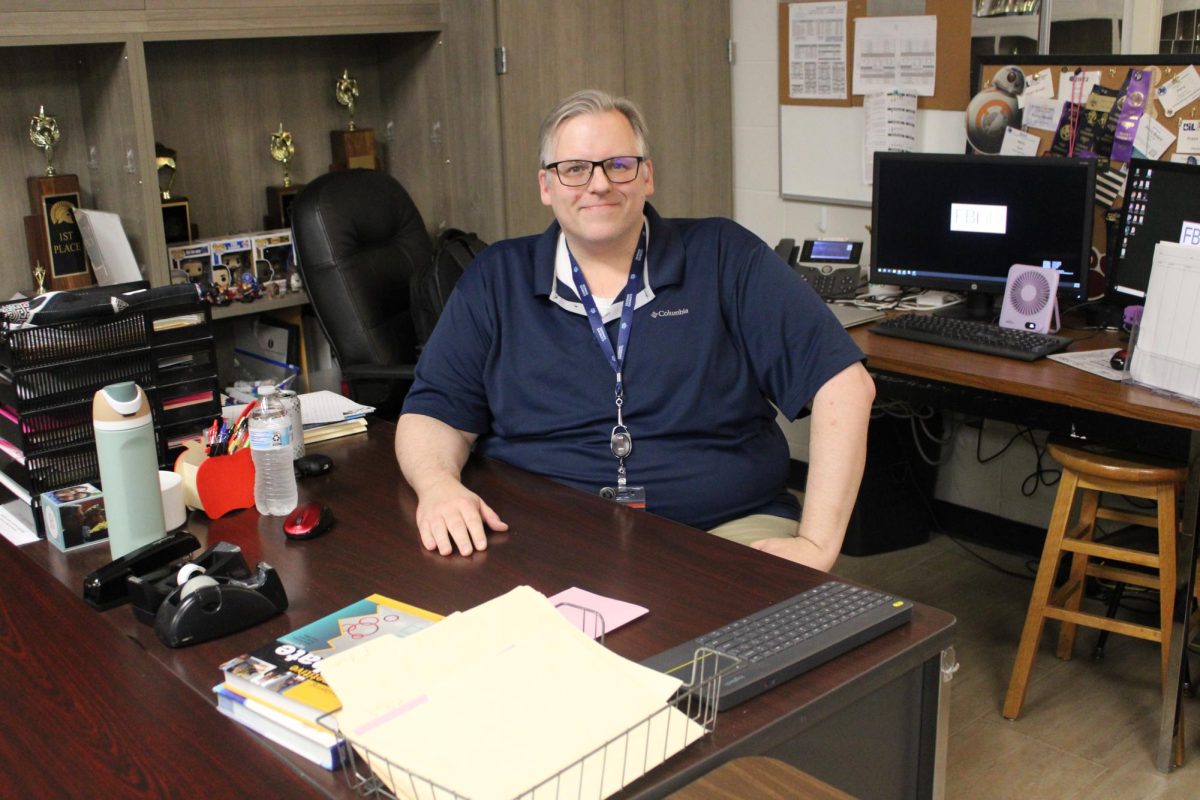
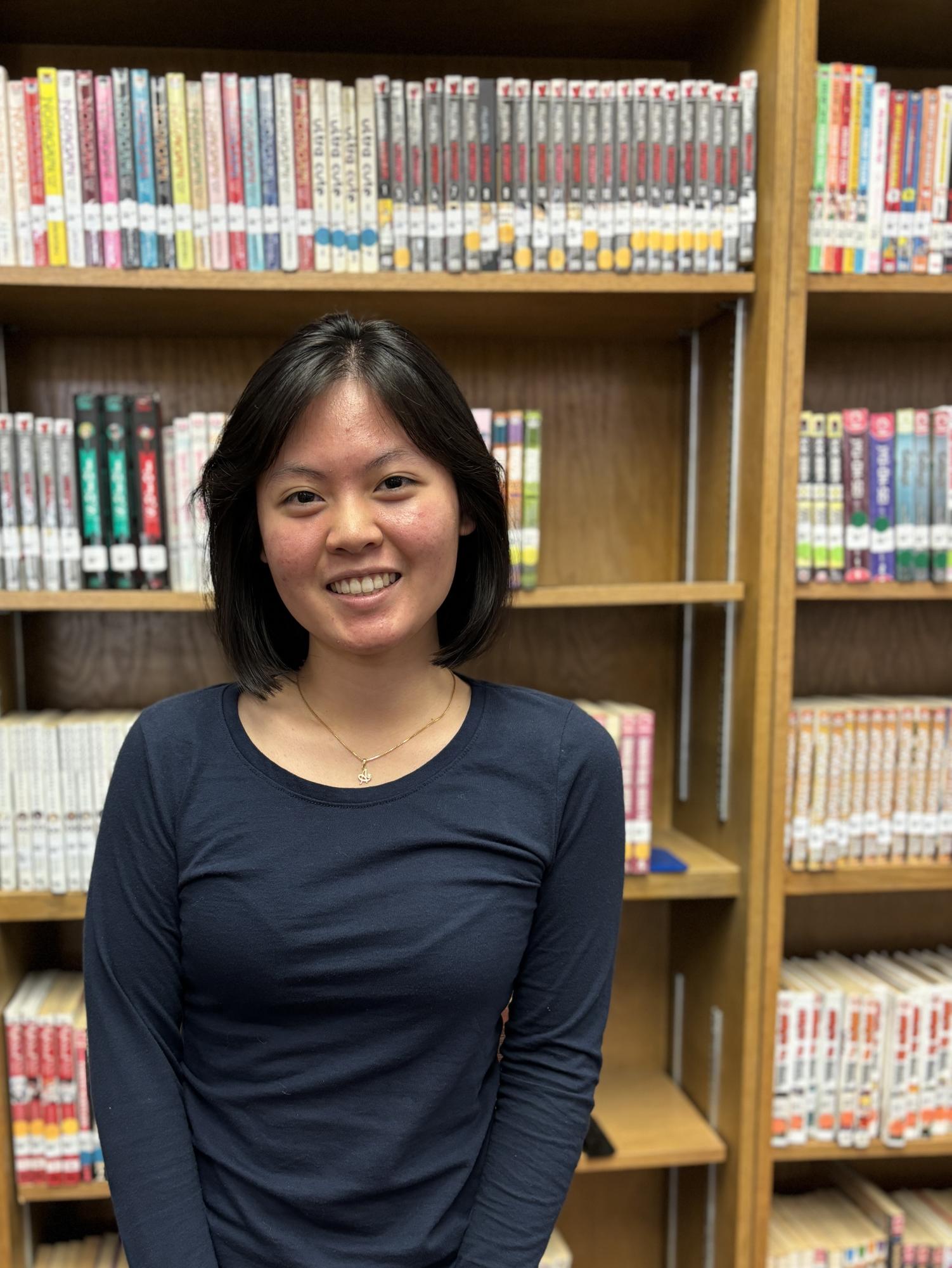
Anne Christiono is a dabbler – in addition to being a long-time pianist, she’s a sunrise runner and weekend badminton, soccer, and tennis player. In one area, however, Christiono is in no way casual.
“Right now, machine learning and AI is very big, very up and coming,” Christiono said. “We see it in our everyday school lives, and honestly, looking at everything that’s out there, I still think it’s the tip of the iceberg. The next several decades are going to be decades of exploration in terms of AI and seeing how it can be applied to a lot of different fields, including biology. So I’m really looking forward to seeing how that plays out.”
Christiono, a senior, plans to major in computer science and biology, then go into the medical field. In school, Christiono serves as the president of Mu Alpha Theta, a mathematics-based problem-solving club and honor society – she cites computer science teacher Lubna Lorena as a “near and dear” role model.
“She’s a very active person in computer science, not only as a computer science professional, but also in the education of the future generation of computer scientists,” Christiono said. “I think it’s really inspiring how dedicated she is and how passionate about computer science she is in order to not only have her passion, but also share it with a lot of her students.”
Though the U.S. STEM workforce diversified in the last decade, with increased representation of women and underrepresented minorities, women still make up only 35% of people employed in STEM occupations, despite making up half the total U.S. population. Women also have lower median earnings than men in science and engineering occupations and are underrepresented among degree recipients in STEM fields. In Christiono’s words, women and other underrepresented groups in STEM are a “pool of untapped talent.”
“A lot of girls are not able to achieve that high standing in STEM because they might be facing a lot of disproportionate challenges earlier on,” Christiono said. “So I think if we’re able to empower these women even further and have that gender balance, then we’re able to further contribute to the world of innovation and knowledge sharing.”
Though Christiono said that her gender was a bigger entity in her mind early on, especially as she entered all-male spaces, it started getting easier after overcoming that first hurdle. Even with persisting implicit bias and stigma, Christiono said she now feels comfortable standing her ground with confidence.
“People these days are definitely not like direct; they’re not going to be like, ‘oh, you’re a girl, I don’t think I want you on my team because I don’t think you’re as good as me,’” Christiono said. “But then these days, I can just really pull out the accomplishments, be like, ‘oh, are you sure?’ Because I can do this, this, and this that you might not be as good at. So honestly, I prefer to let my accomplishments speak for myself and carry more weight compared to what they perceive as a weakness.”
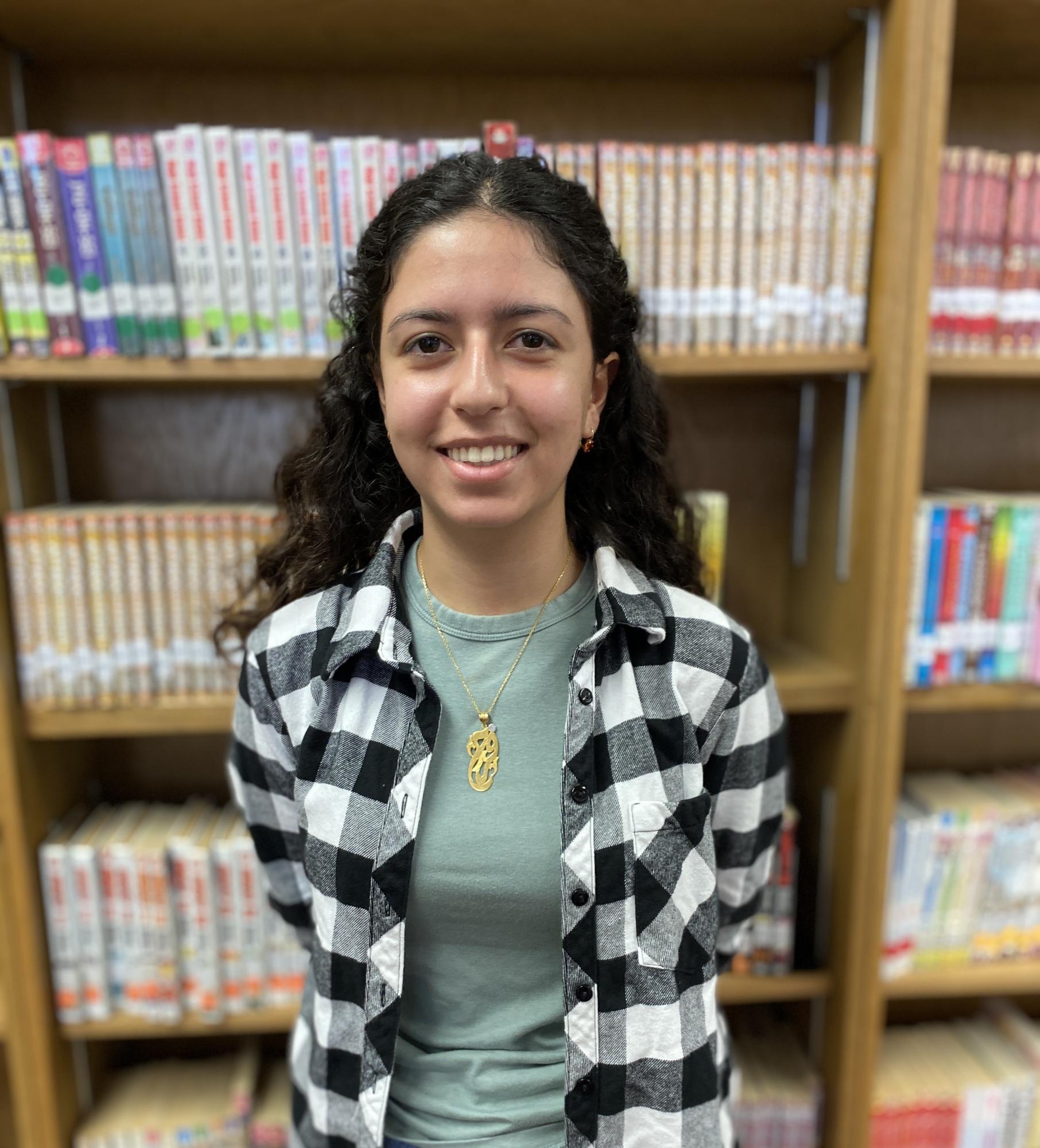
Though exploring the latest neuroscience studies may not be a typical pastime, it is anything but boring to Farah Al Hadad. She said she personally likes looking at research on Alzheimer’s and Parkinson’s – two diseases that she said she has an “emotional heart tug” to.
“I feel like when I keep studying neuroscience, I might be one small step in changing the fact that it’s incurable,” Al Hadad said. “I think that having a personal connection to the distress of it being incurable is something that propels me to care about it more for other people who will also have family members or will personally be affected by neurodegenerative diseases.”
Currently, as a senior, Al Hadad serves as the founder and president of Chemistry Club and as the co-president of Neuroscience Club.
“Medicine, I love it because of new scientific research that changes people’s lives, and that’s what I’ve been loving about neuroscience,” Al Hadad said. “With each meeting we have, we’re always talking about new ways that people can improve in the medical field.”
However, Al Hadad has also run into challenges along the way, including time management between leadership positions in multiple clubs as well as initially low membership in Chemistry Club.
“I’m still very appreciative of all the people that do come, but when I make and plan a whole chemistry club meeting and then three people or five people come, it’s a little bit discouraging,” Al Hadad said. “So I think with discouragement, it’s more about persisting through setbacks or what you perceive as setbacks. Keep working on your goal and that’ll help you hopefully keep growing in whatever you’re doing or maybe find new ways to grow.”
Chemistry Club sponsor Caitlin Zuber said that while the club has a good gender split, the Science Contest of the University Interscholastic League, which she also sponsors, could see the most growth in female participation.
“The teams that I’ve had that go to regionals or to state have always been all boys so far,” Zuber said. “Hopefully as the years go on, we’ll get more girls who advance to those levels.”
Zuber, who said she is “absolutely” a feminist, encourages people to be assertive, especially girls who may be entering into all-male organizations. Outside of inner confidence, Zuber also gives one last piece of advice: find a friend.
“I think that’s one of the things that I wish we could do more of for science UIL,” Zuber said. “I feel like if you can find a female friend and do it together, then that can make it more fun and then you’re not like the only one left out…So strength in numbers.”
Al Hadad said she has drawn support from previous seniors, people who have similar ideas and can share advice. This year, from leading discussions of future career opportunities in neuroscience or test reviews in chemistry, Al Hadad herself has stepped into the role of a mentor.
“In order for us to be equal, you have to help people that find discrimination in fields [where] there are not a lot of women,” Al Hadad said. “I think the whole point of feminism is to assist people in going into fields that aren’t women-dominated, but not in the way that women think they’re better than everyone…The whole point of feminism is to uplift people who are brought down by society.”
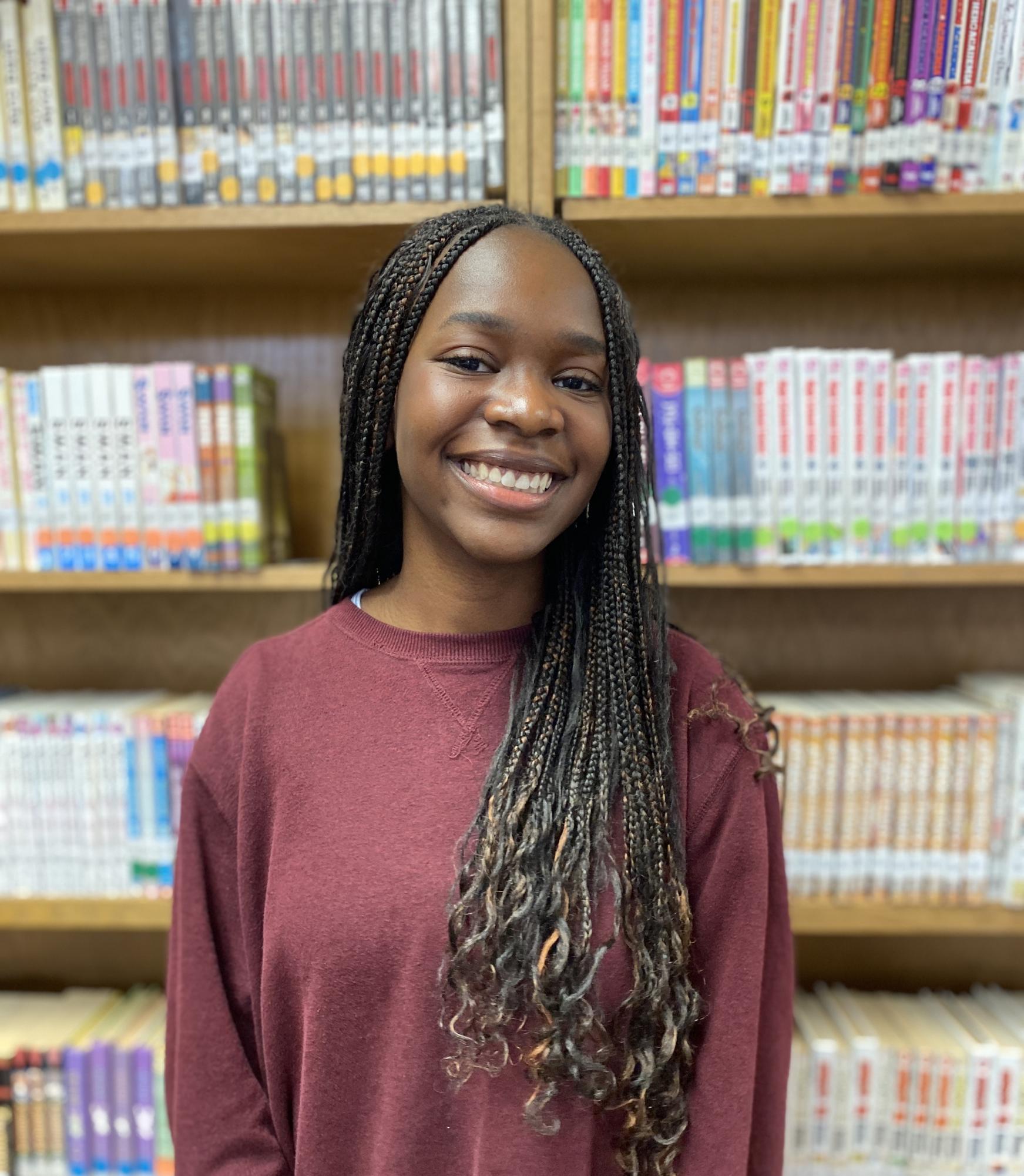
Pearl Oyewole wears many hats.
Gardener (and president of the African American Student Association).
Barista (and a former intern at NASA researching large-scale earthquakes and surface deformation).
Painter (and president of Girls in Computing and Technology).
“I like being someone that other students can look up to,” Oyewole said. “I’ve had underclassmen reach out to me for mentoring just to learn from and have some guidance. Being a leader in multiple organizations and just doing the things that I do, I have acquired knowledge that can be helpful to others.”
Oyewole’s interest in computer science began in eighth grade – after COVID essentially halted all classes, Oyewole attended online tutorials to continue learning. As soon as she entered freshman year, she joined Girls in Computing and Technology.
“They had different branch meetings throughout the week at this time, so I would go to every branch meeting, I think I went to Girls in Computing four times a week,” Oyewole said. “I just really liked having a space where you could learn at your own pace, and there wasn’t as much pressure as the larger computer science club.”
Now a senior, Oyewole serves as the president of Girls in Computing. As the only STEM club on campus that is targeted specifically toward female students, Oyewole calls the environment a “safe space” against imposter syndrome or self-consciousness.
“When you are the only woman on a team of all men, you will feel different, you will feel left out, and it can be very easy for you to not contribute your unique ideas as much as you should,” Oyewole said. “You might feel as if you’re not as good as them, but you are. That’s something that doesn’t happen in Girls in Computing because you’re not afraid to ask questions to make yourself feel like you stand out even more than you already were in a computer science club setting.”
Oyewole also emphasizes the need for diverse opinions of all kinds so that innovation does not develop into an “echo chamber” – a space where people only encounter information that reinforces their own beliefs.
“It’s not going to be just white men who are using technology, it’s going to be women, it’s going to be people of color, people with disabilities,” Oyewole said. “If all these people are using technology, but it’s been created by the same type of person, then technology’s not going to be accessible, it’s not going to be something that benefits everyone.”
Education accessibility and climate change are the two issues that have fueled Oyewole’s endeavors so far in STEM, as well as her future aspirations of doing research or finding solutions to these problems. Over time, Oyewole said she has become more confident in her skills and now recognizes the things she can bring to the table.
“Oftentimes I am the first to do something, but afterwards, it makes it a lot easier for other people to want to achieve more for themselves,” Oyewole said. “I like being a good role model for them.”
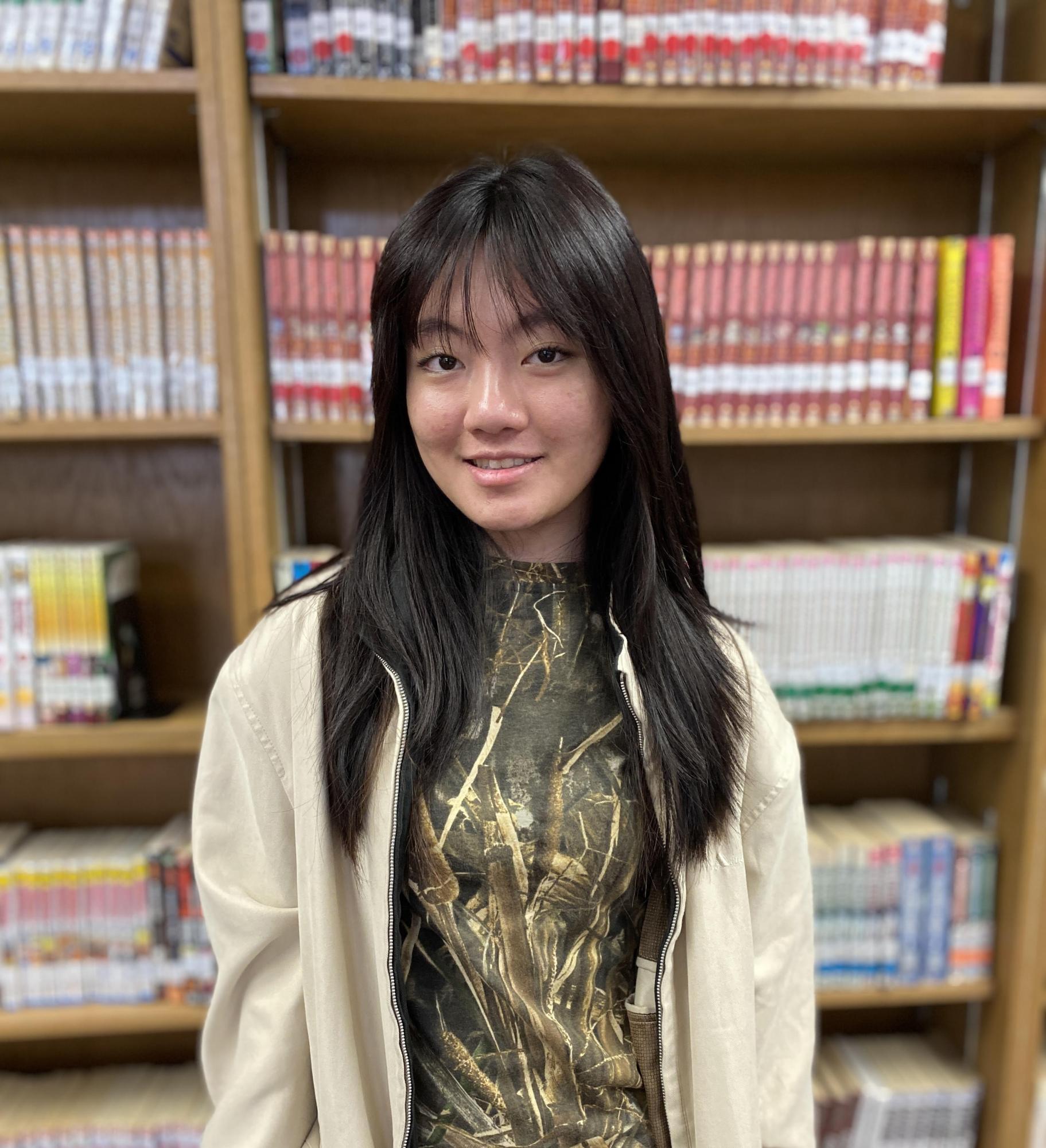
To Tina Li, math is “beautiful.”
“I think that mathematics is just really wonderful because it’s kind of the basis of all of our operations in real life,” Li said. “But it’s also really complex in that the problems that we have in our daily lives to consider the different aspects of operations that we kind of take for granted. All of that is on the basis of mathematics.”
Despite anticipating future challenges, Li, a senior, plans to major in math at MIT – as the co-vice president of MAO, Li said she draws motivation from seeing herself progress.
“I just want to keep improving all the time, and improvement comes with practice, which is how I’m motivated to keep practicing,” Li said. “The improvement can be shown, or I guess put on paper, through competitions and stuff. So that’s just kind of a good marker to see, like, hey, I’ve practiced a lot, I’ve done a lot of work, and this has made me become better internally.”
Li, a 5-time qualifier for the American Invitational Mathematics Examination and a 3-time qualifier in the USA Junior Mathematical Olympiad, said her experience in contest math pushed her to rely on this internal motivation to keep going.
“It’s pretty demotivating to see when you go to competitions, there’s always a lot of guys there,” Li said. “You also see that even though there may be women at these competitions, it’s mostly the men who are speaking and whose voices are being heard and who are discussing things.”
Though Li advocates for leveling the playing field in STEM for men and women, she said the process of doing so shouldn’t be biased, or cast as a “pity thing.”
“I think there’s a lot of sentiment that because there’s a strong push for women in STEM, that the women accepted are held at a lower standard than the men are,” Li said. “I just think that’s so incorrect. We want to encourage more women to be in the field to bring that up to that standard…because it’s a hidden talent that we need to unlock. Just because they’re not motivated and they’re not encouraged, that makes it so that there are plenty of really amazing, talented women who aren’t showing that talent because they’re unable to.”
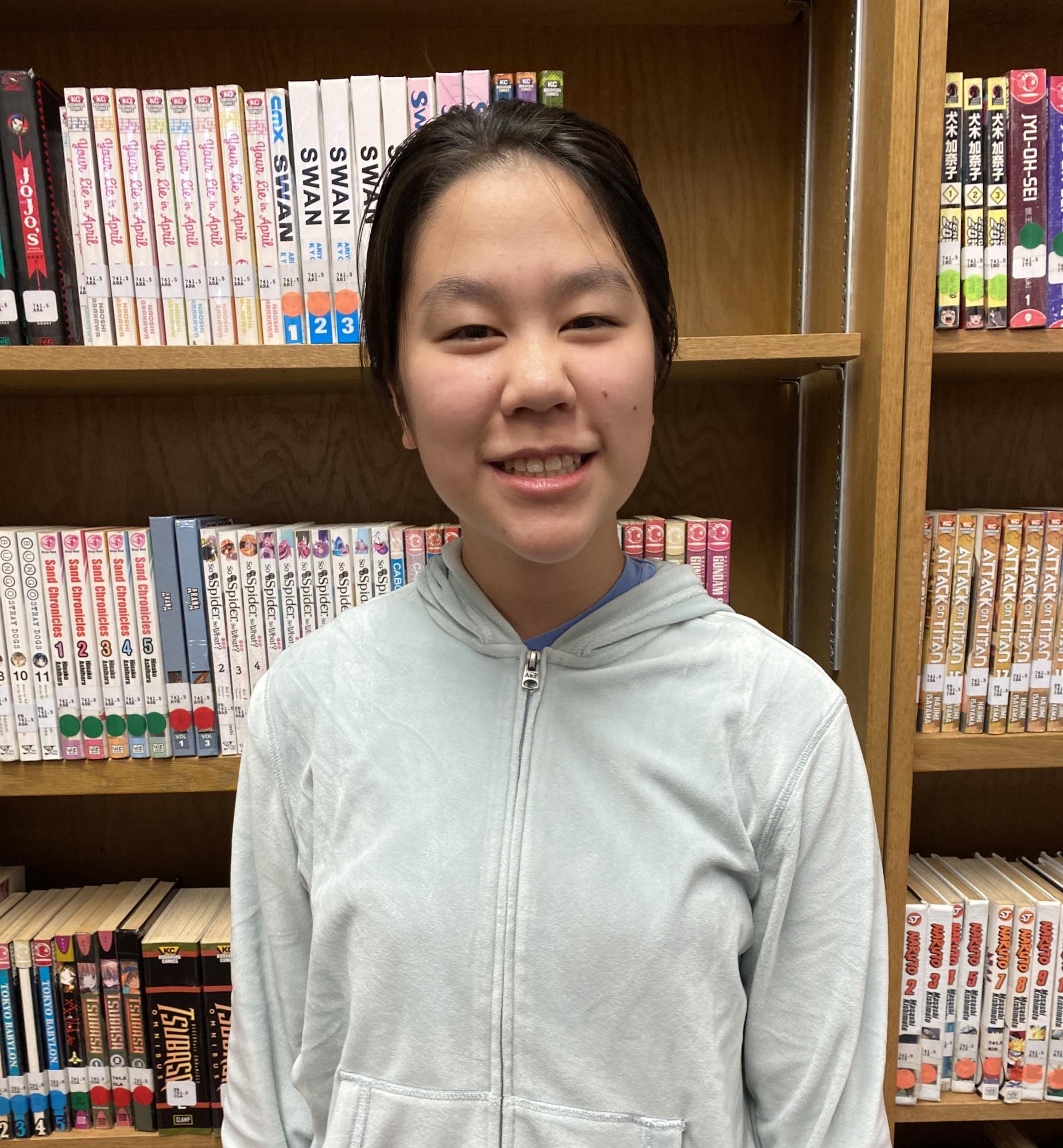
3D printing was the catalyst for Sage Wang’s foray into STEM.
“My parents early on took me to these Maker Faire things where you could go around and look at all the different STEM products people had made,” Wang said. “For example, when I was young, 3D printing was kind of a new thing, and I remember being really fascinated with how you could build things just from a design on a computer and can be printed in real life in multiple dimensions. It was very exciting.”
Years later, Wang’s love of STEM led her to become the co-vice president of MAO as a junior. Wang said although advertising can be difficult, she draws motivation from the enthusiasm of the MAO community.
“For example, [at] our last general meeting, we had a presentation about game theory and looking at all these different ways that math applies to the strategies of those things,” Wang said. “Seeing people who are not necessarily contest math kids get invested in math because of the interesting applications is very rewarding.”
MAO sponsor Ricardo Garcia said he views his role as a “cheerleader” in helping the club members get recognition and earn awards for their accomplishments. This year, with five girls out of eight total officers in MAO, Garcia emphasizes that “STEM is for everyone.”
“Throughout the years we’ve had different officers come and go, and we’ve been fortunate enough to have some very strong leaders in the club that have been female, and it’s good to have that representation,” Garcia said. “I think it’s a good model for the younger students to see that girls, women, they can keep going with STEM.”
Wang emphasizes the importance of getting female voices to be heard in every field, from the humanities to math and science. Wang herself is the co-founder of Kid Teach Kid, a free online learning platform, and has been recognized in the Scholastic Art and Writing Competition and as an all-state cellist, in addition to qualifying twice for the AIME and medaling in the USA Computing Olympiad.
“I think whatever feminine or societally more masculine aspects of your life you want to enjoy, you should be able to,” Wang said. “I don’t think there should be any restriction on what you can and can’t do. Just do whatever you’re passionate about and accomplish that however you see fit.”
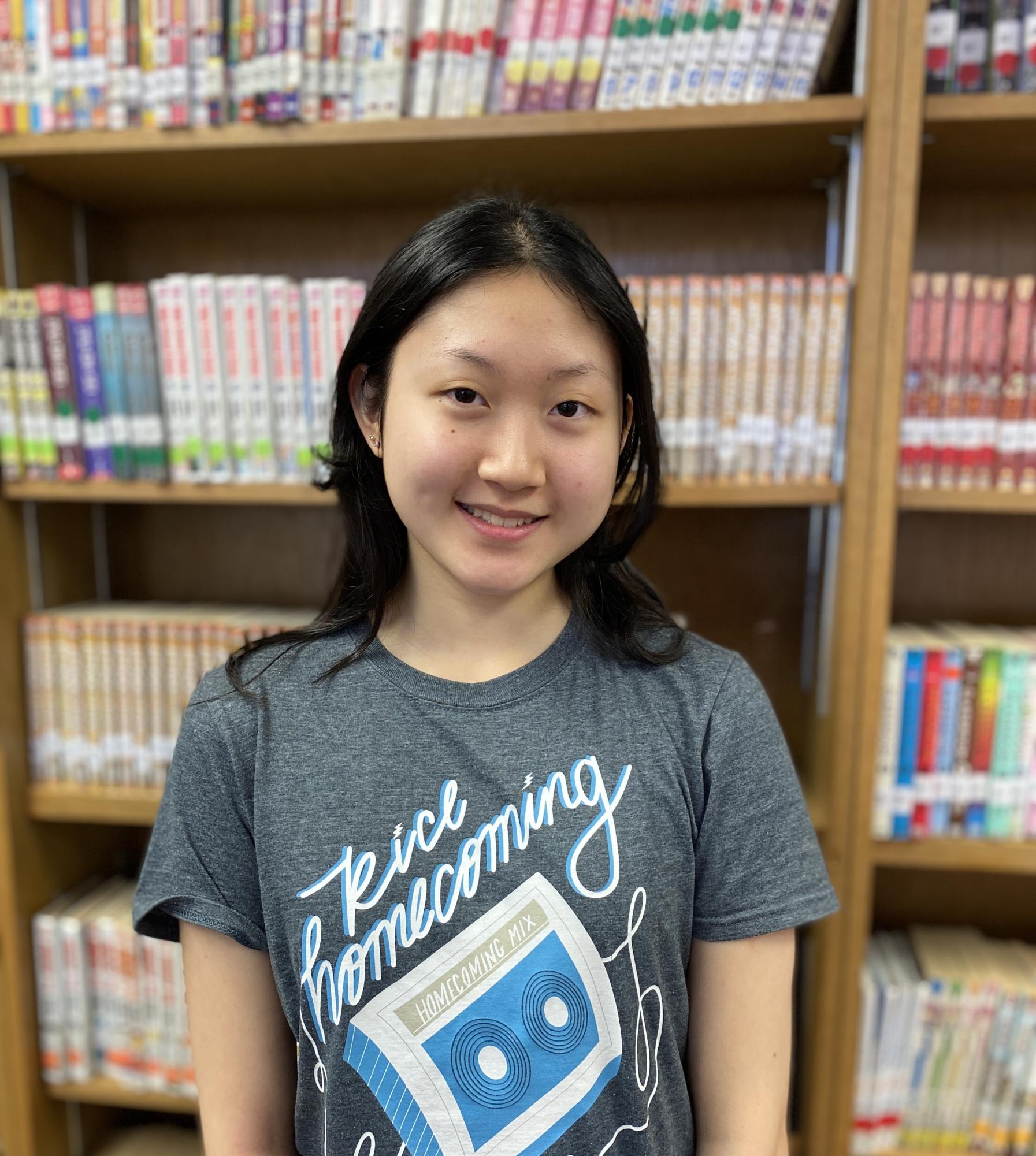
Jessica Ji had expected four simple steps: idea generation, execution, success, then implementation.
“For my first reaction, I thought that the research would go really smoothly and the experiment would just have high yields and it would turn out as expected,” Ji said. “But of course, that’s not how research works. You often have to go through thousands of trials before you can actually get an attainable product.”
As part of the Welch Summer Scholars Program in the summer before senior year, Ji was doing chemistry research at Texas Tech University on creating sustainable plastics from sugars. Ji calls the failure of the first experiment a “big turning point”. Afterward, she kept coming up with trials and new methods that yielded a product, though not enough to make an entire plastic.
“The experience did indeed teach me a lot about the research process, how tedious it is, and how much motivation and determination you actually need,” Ji said. “It also helped me realize a sense of resilience within myself.”
Ji said she plans to pursue an MD-PhD, a dual doctoral degree for physician-scientists that combines professional training in medicine with research expertise. Within school, she serves as a logistics officer in the Junior Engineering Technical Society.
“I feel like in school, science is just not enough,” Ji said. “I think it’s really meaningful to join clubs and find opportunities outside of school where you can really get to explore science and explore your passions.”
In terms of gender, JETS President Aryan Bora said that Clements is a generally equal school – a “shining example.” However, reflecting on his experience in math and computer science competitions, Bora said the difference becomes more prominent.
“The gender balance has got so bad at those levels that at the top levels, they have to do separate things for girls and boys,” Bora said. “It’s literally just that bad. In the top 200 for [computer science], you’re going to find like four girls and 190 boys, which is a really, really big issue.”
However, Bora calls JETS a “supportive community” where, in spite of friend groups that may differ in gender, people will be supportive of anyone.
“Especially like among our younger students, like freshmen, sophomores, getting into science is a really, really hard thing,” Bora said. “We try to help everyone – it’s such a valuable addition to the school as a whole, right? We introduce them to the JETS community and the people make friends that way. It goes uphill.”
Ji said she hopes for girls to explore science more, continuing an upward trend and closing the gender gap in traditionally male-dominated STEM fields, by serving as a role model herself.
“A lot of people underestimate the capabilities of women,” Ji said. “There are biological aspects, but I think that women have the power and capability to do whatever they want as long as they set their mind to it.”
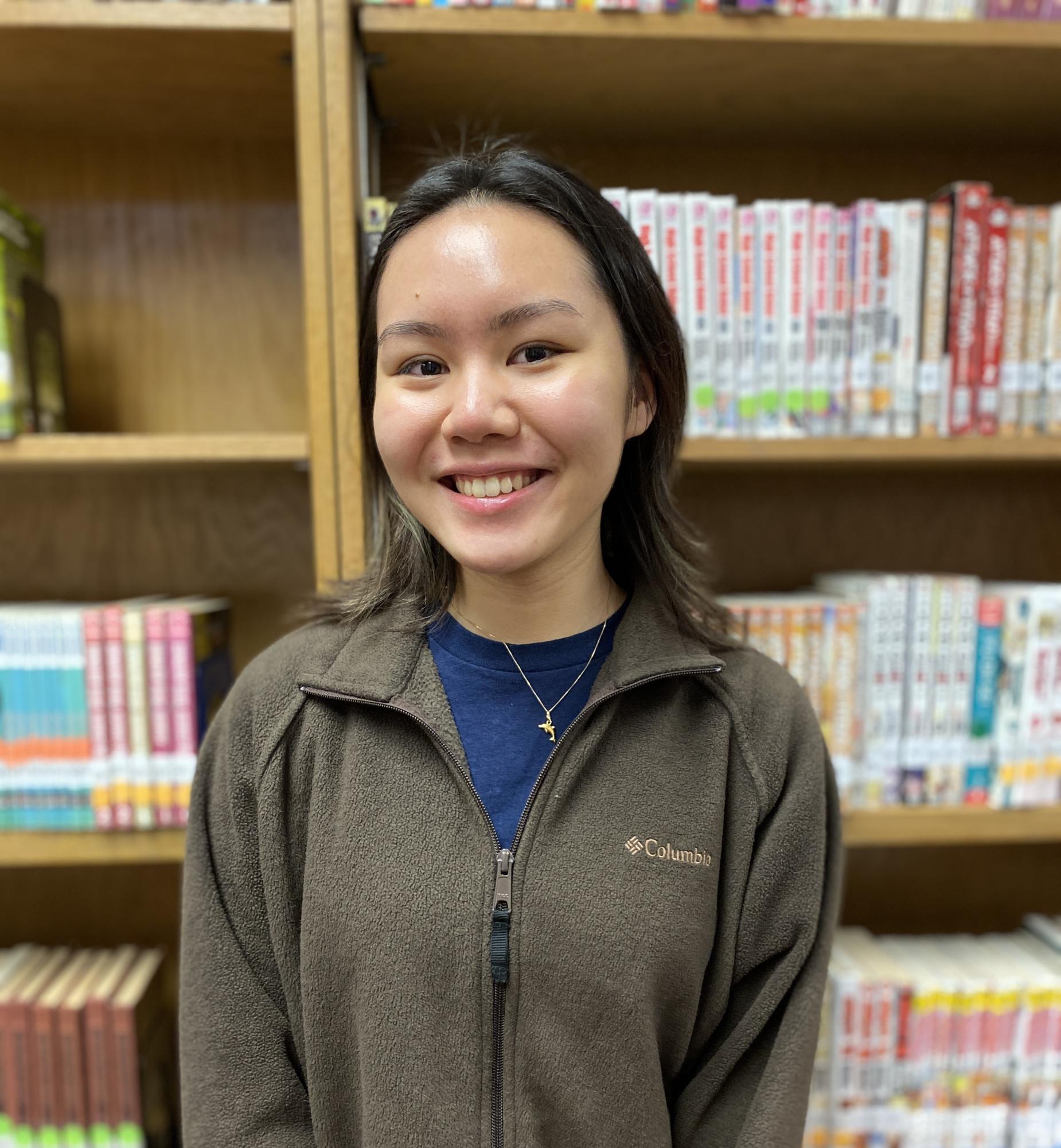
With both parents in the field of medicine, Isabella Wu’s future aspirations were crystallized at a young age.
“Ever since I was young, my mom and my dad have been teaching me little lessons about healthcare,” Wu said. “They come home with their stories, really inspiring stories, and they’re talking about their patients and how their patients make them a little happier every single day, and that really makes me want to do it.”
Wu said that despite the molecular nature of the work, she hopes to “humanize” medicine in the future.
“Medicine is always going to be there, no matter if AI is going to take over the other jobs or not,” Wu said. “Medicine is always there because you know that you have the comfort of having humans take care of you, and I think that helping other people who are in need is very important, especially when it comes to your health.”
As a freshman, Wu joined JETS and competed with the team at the National Science Olympiad, citing her older sister as her primary role model.
“While most of the people in STEM are men, I think there are women that stand out to you and naturally catch your attention, and they’re very inspiring,” Wu said. “Last year, the presidents of JETS were Anisha and Nicole, which is my sister, and they both worked so hard together, and they studied every single night. I just saw them put in so much effort to what they really like, and they would study countless hours just because they found it fun.”
JETS sponsor Geoffrey Hart observes that female students tend to provide the most “camaraderie” in the Science Olympiad. However, Hart said female representation is still lacking in smaller competitions like Science Bowl.
“I do think the challenge is going to be if you’re one of the only ones who’s going to be a female participating in this particular event, it can be a little bit intimidating, understandably,” Hart said. “I would imagine the same thing would go with boys wanting to do something that is traditionally something that girls do. But I do think that they have to overcome that intimidation and I think it’s best done in small groups, like you’re with a team or just feel like you’re not alone.”
This year, two out of the nine JETS officers as female – Hart said that Wu, one of the logistics officers, is always the one who “rallies the troops.”
“You have to challenge yourself, and even though you may seem like you don’t fit in, there are always people who are offering a hand, whether it’s a guy [or] a girl,” Wu said. “I will always be there, and there are multiple other officers and veterans in the club, they’re always willing to lend a hand, and I always see collaboration. If you’re ever scared to ask, don’t be, because you miss 100% of the chances that you can’t take.”

